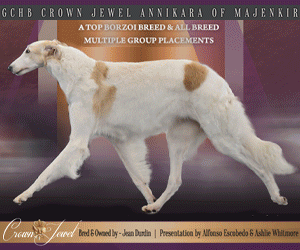NC Alert: Ask Your State Rep. to Oppose Bill Regulating Dog Ownership
A bill has once again been introduced in the North Carolina House of Representatives that would define a “commercial breeder” based solely on the number of intact female dogs someone owns. The measure also would transfer state animal welfare regulation and oversight from the Department of Agriculture to the Department of Public Safety.
The AKC strongly believes that all dogs deserve a life in a safe, healthy, and humane environment. Animal cruelty is already a felony in North Carolina – regardless of the number of dogs maintained. AKC supports full enforcement of this law and additional resources as necessary to ensure the welling of animals.
House Bill 159, however, creates new and confusing definitions and exemptions and transfers oversight the department with scientific expertise and experience in animal husbandry necessary to protect animal welfare in the state.
The bill has just been introduced and assigned to the House Judiciary II Committee. North Carolina residents are encouraged to contact their State Representative, as well as the House Judiciary II Committee, to express your concerns with House Bill 159 as introduced.
To find the name and contact information for your State Representative, visit the General Assembly’s “Who Represents Me?” site and type in your address by the North Carolina House of Representatives map. Click here for the House Judiciary II Committee roster.
Summary:
AKC Concerns with House Bill 159 include the following:
Defines a “commercial breeder” based solely on ownership of multiple animals. AKC believes that regulation as a commercial breeder should be based on actual commercial activity (sales) rather than ownership of multiple dogs. The definition would include individuals who own 11 or more female dogs over the age of 6 months. It only includes those dogs “kept primarily for the purpose of breeding”, but this would be difficult for law enforcement to determine and enforce.
Many owners of multiple dogs who do not breed, or who breed only an occasional litter would now find themselves improperly labeled as commercial businesses and in violation of their local zoning and HOA codes. A better approach is to define commercial breeding based on reasonable and clearly quantifiable commercial activity rather than property ownership or assumptions of what a person may intend to do with their property.
HB 159 states that a person will be exempt if they keep dogs exclusively for herding, guarding livestock or farm animals, hunting, tracking, or “exhibiting in dog shows, performance events, or field and obedience trials.” It does not state, however, how this is determined or proven. Further, this would not apply to most hobbyists, who may keep dogs for variety of reasons (e.g. as a pet andshow dog or as a hunting dog and breeding prospect).
Transfer animal welfare oversight from the Department of Agriculture to the Department of Public Safety. Law enforcement should not be burdened with developing, administering, and regulating animal policy, just as is it inappropriate to ask the Department of Agriculture to enforce the state’s criminal laws. Each department has a specific function and area of expertise that enables them to best serve the state in their specific capacity and purpose.
Require the state to inspect every “commercial breeder” complaint. The bill would require law enforcement to conduct an inspection for every complaint against a commercial breeder as defined in HB 135. It does not state that these complaints have to be substantiated or corroborated in any way, which could result in an enormous drain on law enforcement resources and time, and harassment of responsible, law-abiding North Carolina dog owners and breeders. This is particularly problematic where private organizations offer bounties for complaints about breeders.
Place numerous new requirements on kennels, some of which do not take into account the needs of specific breeds and dogs.The bill also contains numerous regulations and specific requirements regarding kennels. While some are basic standards of care, others could actually be detrimental to the health of dogs. This includes requiring a kennel to always be between 50 and 85 degrees. This one-size fits all standard does not take into account those breeds that benefit and actually thrive in other temperatures outside this range.
Breeders and kennel owners are encouraged to closely review House Bill 159 to see how it would impact your dogs and kennel.
AKC Government Relations will continue to closely monitor this legislation and provide more information as it becomes available.
Short URL: http://caninechronicle.com/?p=72815
Comments are closed












